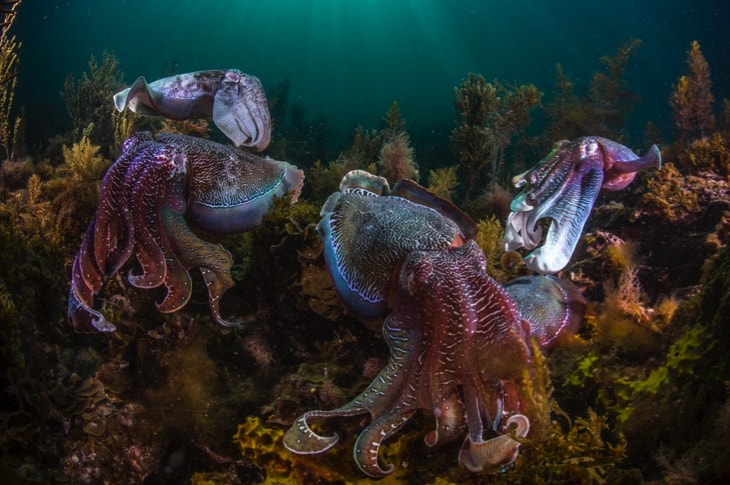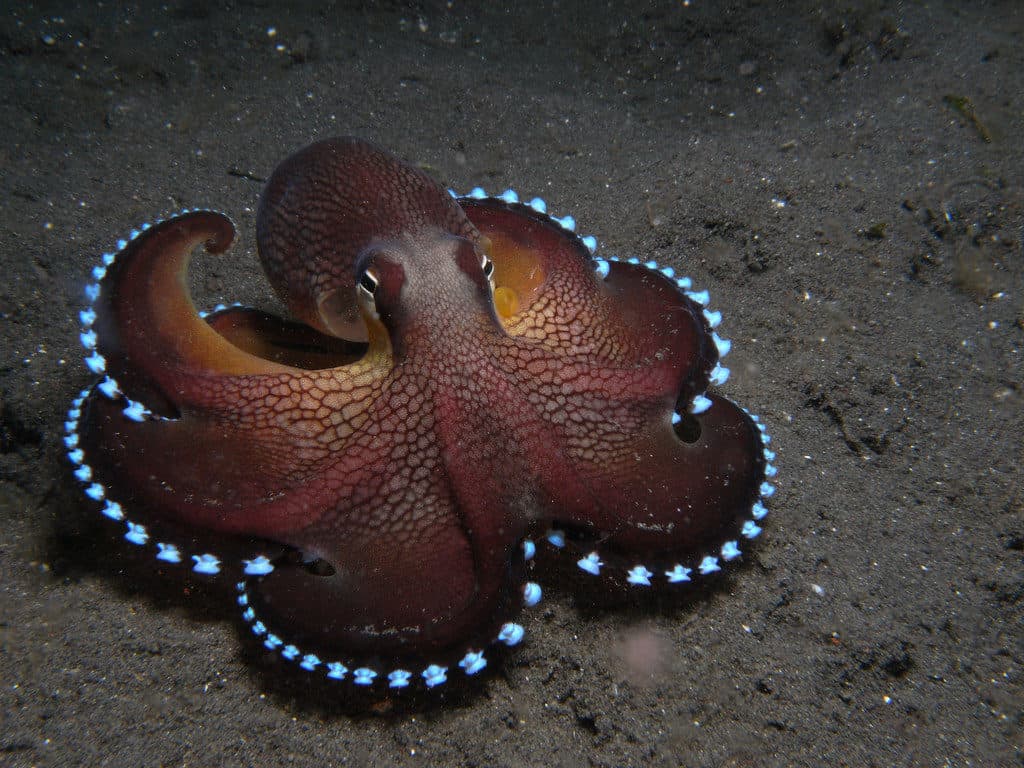
After noticing that cuttlefish numbers were declining during the typical winter mating season, Bronwyn Gillanders from the University of Adelaide decided to dig deeper into what the problem might be. Every winter, hundreds of thousands of cuttlefish gather in Spencer Gulf off the coast of Australia, but those numbers have dwindled down to just 7% of what they used to be in the 1980s.
When Gillanders and partner Zoe DoubleDay made the decision to look into the issue, what they found was extremely surprising. Though the most recent numbers of the cuttlefish population showed that the species was in a decline, the overall figures revealed that squids, octopuses, and cuttlefish were actually all thriving in comparison to other marine life.
By scouring through earlier studies and speaking with other scientists who had studied the numbers in the past, they discovered that cephalopod numbers have been increasing since the 1960s and that this explosion wasn’t exactly discriminatory. It was evident that every major species within the group, including those that stuck to the same patch of the ocean floor, those that swim up and down, and those that move vast distances across the floor, was growing quickly.
“You wouldn’t have expected to see the same trend across these different groups,” said Gillanders. “It does potentially suggest that a large-scale, global phenomenon is affecting all of them.”

What exactly that global phenomenon might be is perplexing, as climate change and global fishery catches have actually caused the extreme downfall of many fish species. Overfishing and poaching have also negatively impacted every part of the marine food chain, starting with predators such as sharks and moving all the way down to tiny species. With the removal of a keystone species, the results further down on the food chain can actually be catastrophic.
This means that the increase in cephalopods is likely caused by less predators to keep their populations in check, leaving the creatures to run rampant and reproduce rapidly. The characteristics that are specific to cephalopods, such as fast growth rates, short lives, flexible reproductive cycles, voracious appetites, and broad-ranging tastes in prey make them the perfect specimens for quicker adaptation to their surroundings.
Though this may seem like good news, the long-term effect of such an explosion is unknown but not promising. The researchers warn that if their food supply runs out because of overpopulation, they might need to resort to cannibalism, or fishers might turn to catching cephalopods once their own usual catches become too difficult.
“I guess if you’re a squid or octopus fisherman, these increases may seem like a great thing,” said Benjamin Halpern, a researcher from the University of California, Santa Barbara. “But such dramatic global changes are quite worrisome. When we change the oceans this much, we move things into a new state—one that we know much less about. We might have more squid on our plates in the short run. What are we risking losing in the long run?”
What are your thoughts on this news? Please share, like, and comment on this article!
This article (Octopus Populations Are On The Rise, But That May Not Be A Good Sign) is free and open source. You have permission to republish this article under a Creative Commons license with attribution to the author and TrueActivist.com


